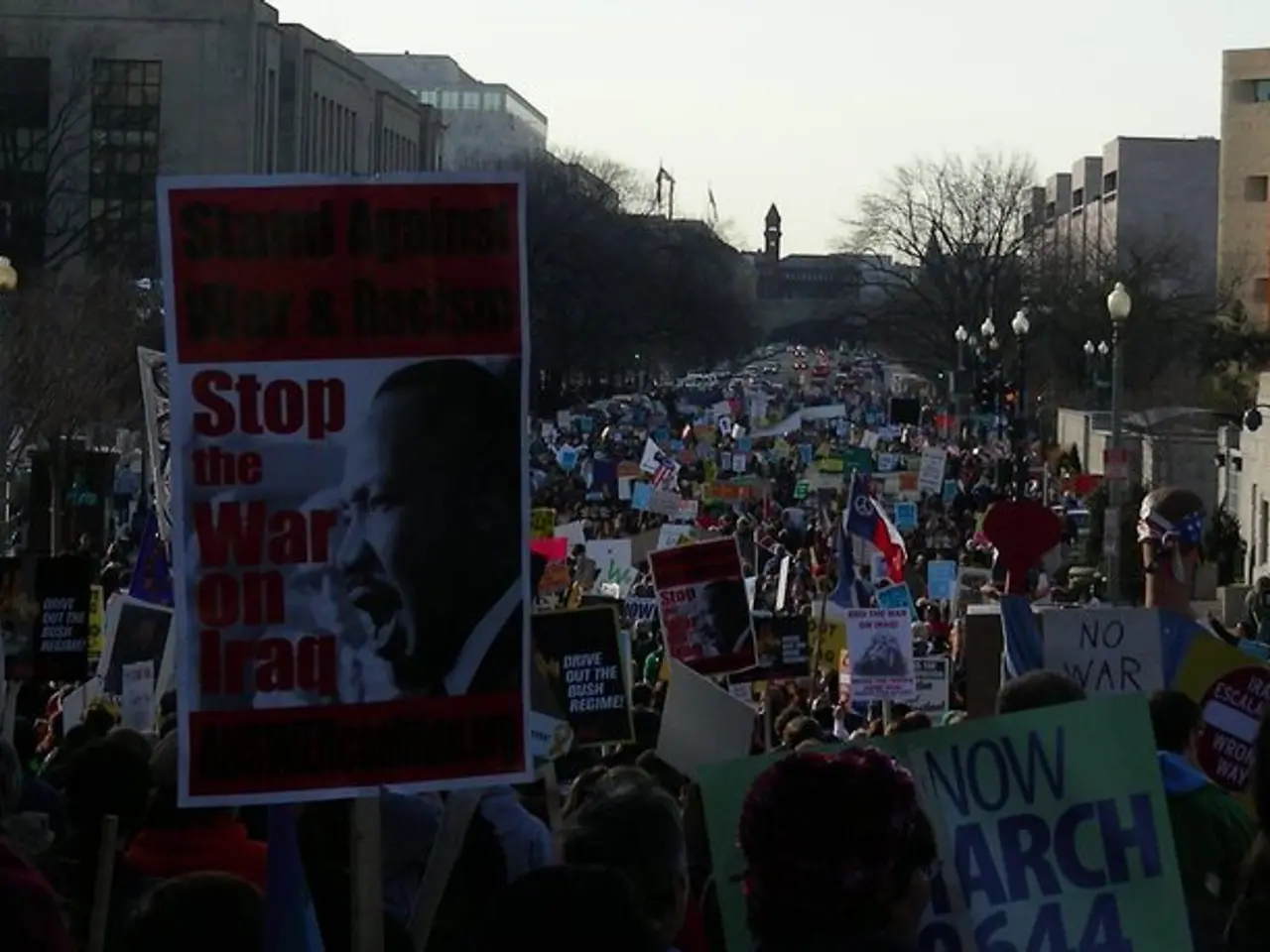Metropolitan Police Writing Custom Guidelines for Live Facial Recognition Use at Notting Hill Carnival
In the UK, the use of live facial recognition technology (LFRT) remains a contentious issue, with no specific primary legislation governing its application. The Metropolitan Police primarily relies on common law powers and compliance with existing data protection laws and human rights standards.
Recently, the Information Commissioner's Office (ICO) has emphasised that facial recognition technology is subject to data protection law, requiring its use to be lawful, fair, and proportionate. However, the lack of specific legislation has led to legal challenges and criticisms from human rights groups, with the Equality and Human Rights Commission (EHRC) arguing that current practices may breach human rights law.
A judicial review is scheduled for January 2026 to examine the Metropolitan Police's use of LFRT, highlighting ongoing legal and ethical debates surrounding its deployment. Notably, Big Brother Watch is supporting a legal challenge brought by Londoner Shaun Thompson and Silkie Carlo of Big Brother Watch, who were misidentified through live facial recognition and held by police.
Meanwhile, the controversial Online Safety Act continues to make headlines. Critics argue that the Act is censoring children and adults alike from a range of legitimate content, despite being presented as a means of keeping children safe online. The Secretary of State for Science, Innovation and Technology, Peter Kyle, has claimed that those who want to overturn the Online Safety Act are on the side of predators.
In a separate development, the Home Secretary, Yvette Cooper, has announced a "governance framework" for LFRT. However, Big Brother Watch believes that primary legislation is necessary to ensure safeguards and accountability. This stance is shared by Shaun Thompson, who was misidentified by LFRT, and Silkie Carlo, the director of Big Brother Watch.
The use of LFRT has been a topic of discussion in the political sphere as well. The Home Office and the London Metropolitan Police have been promoting the use of LFRT, citing the number of arrests made and plans to increase deployments. This promotion, however, has faced opposition, with Lord Paul Strasburger, the chair of Big Brother Watch, stating that treating peaceful protestors as terrorists is Orwellian.
One such instance of peaceful protest was on 9 August, when the Met made 522 arrests of protestors in London, many of whom were holding placards bearing only the phrase: "I oppose genocide. I support Palestine Action." The High Court has given permission to challenge this decision on grounds of freedom of expression and freedom of assembly.
Interestingly, half of the total arrests made were of people more than 60 years old. This raises questions about the potential misuse of LFRT and the need for robust legal safeguards.
In a different context, the Metropolitan Police plans to use LFRT at the Notting Hill Carnival later this month. However, the use of LFRT at the Carnival was scrapped after trials in 2016 and 2017 due to widespread outcry over discrimination and bias.
As the debates surrounding LFRT continue, it is clear that the need for clear, specific legislation and robust safeguards is more pressing than ever. The Dystopian summer reading club recommends books like 1984 by George Orwell, The Metamorphosis by Franz Kafka, Fahrenheit 451 by Ray Bradbury, The Handmaid's Tale by Margaret Atwood, Never Let Me Go by Kazuo Ishiguro, and Klara and the Sun, as they provide insight into the potential dystopian consequences of unchecked technology and government power.
- The lack of specific legislation governing live facial recognition technology (LFRT) in the UK has led to legal challenges, criticisms from human rights groups, and concerns about its lawful, fair, and proportionate use, as emphasized by the Information Commissioner's Office (ICO).
- The ongoing debates regarding LFRT extend beyond its application in law enforcement, reaching fields such as education-and-self-development and entertainment, where the potential impact of unchecked technology and government power is a prominent concern, as explored in books like 1984 by George Orwell.
- In the realm of lifestyle and general news, the controversial use of LFRT continues to be a hot topic, highlighted by events such as the legal challenge brought by Londoner Shaun Thompson and Silkie Carlo of Big Brother Watch, who were misidentified through live facial recognition technology, and the opposition to its deployment at the Notting Hill Carnival due to concerns about discrimination and bias.




